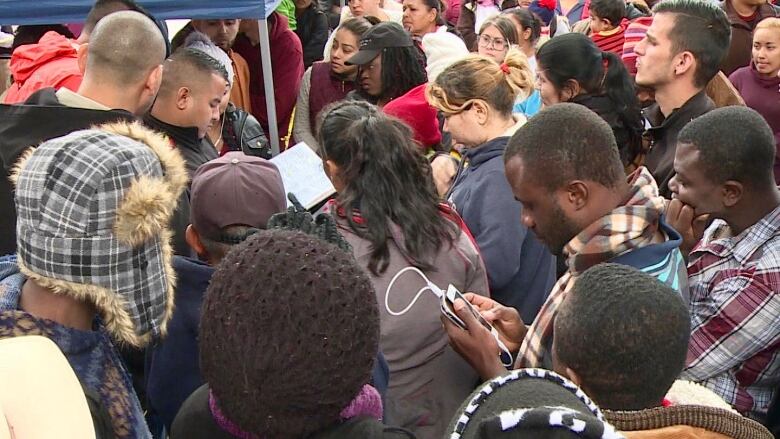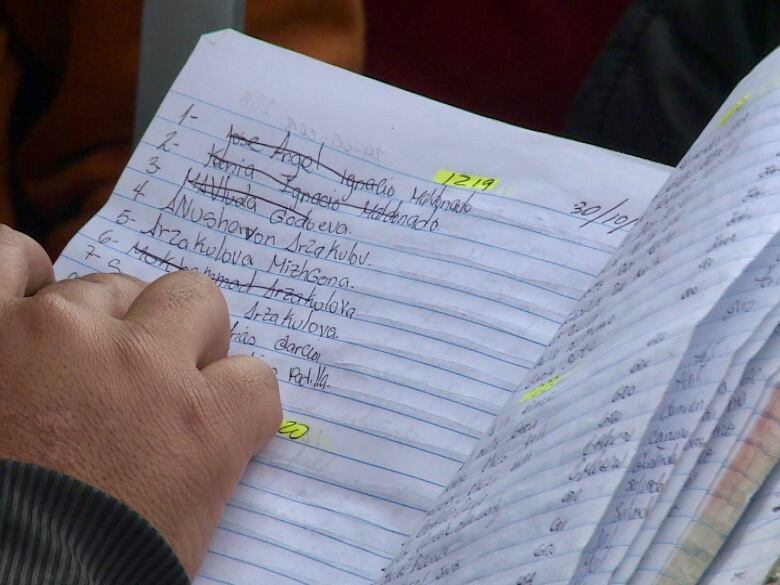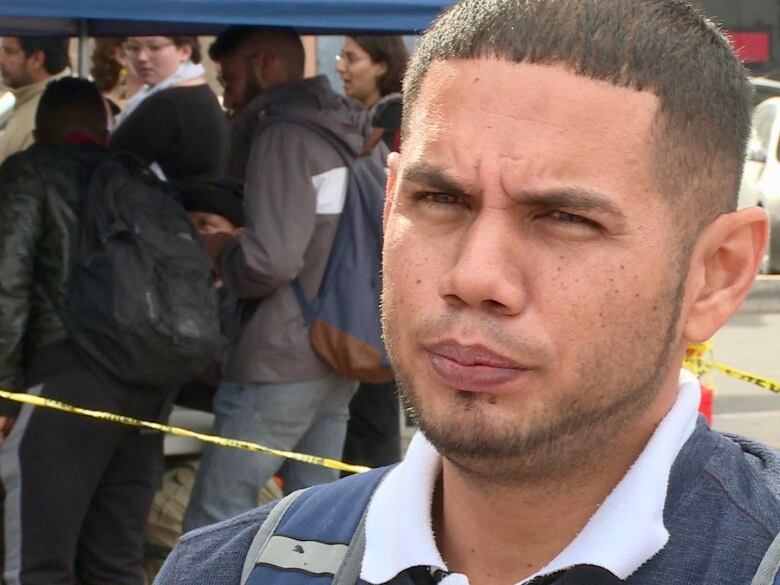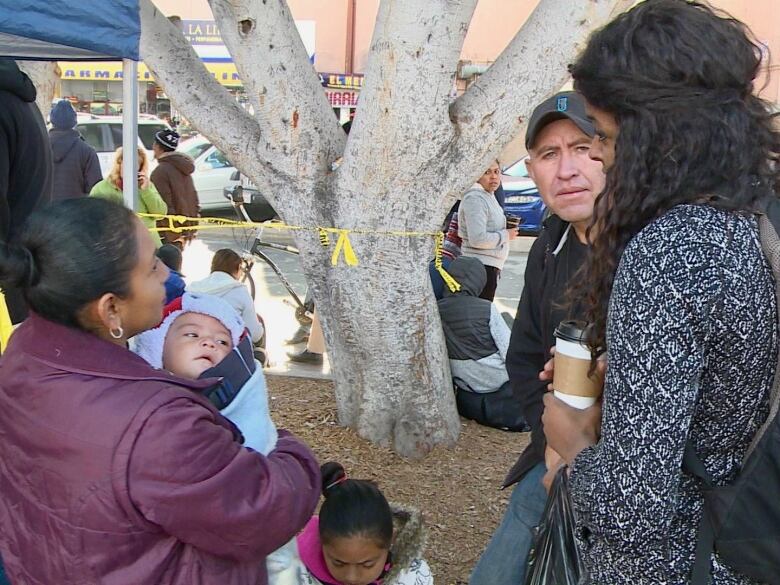'La lista': For some U.S.-bound migrants, it means hope. For others, despair
Migrant-run list of those waiting in Tijuana for a chance at asylum in U.S. has topped 5,000 and growing

Every morning in Plaza Viva Tijuana, Mexico, volunteers set up a blue tent, unfold a plastic table, and open up a silver-and-black ledger. And every morning the migrants come hundreds of them with their children and their belongings, hoping this will be the day the man with the ledger reads out their name.
Those who are called can proceed up the nearby ramp to U.S. Border Security for their initial asylum claim interview. But since the caravans started arriving, the ledger's pages have been filling up fast. And a recent change in U.S. immigration policy means these days few migrants are called.
Many are now reluctantly giving up their American dream and accepting a free bus ride back to their country of origin. Others, like Manuel Orellana, are still holding out hope.
Orellana is one of the last in line. He fiddles with his ID card nervously as he waits his turn to add his name to the list or what migrants call "la lista."Orellana fled Honduras because he saidhe accused the government of fraud in recent elections.
"I started hiding because the police and state security were following me," he said. "I'm here because of a life-or-death situation." CBCNews could not independently verify his claims.
'I can wait'
Now, after making the painful 4,500-kilometrejourney, he's finally about to add his name to the list, the only way migrants can legally cross over to San Diego, Calif., for a U.S. asylumscreening.
The men and women behind the table taking down names say Mexican immigration authorities areostensibly in charge of the ledger, but it's run by volunteers who are themselves on the list.
The book has been around for years, long before the recent caravans, and written on its pages are the names of asylum-seeking migrants from around the world.
But since November, when thousands more began arriving together in Tijuana, the backlog has skyrocketed.There are reportedly more than 5,000 names on the list.

The U.S.began the practice of "metering" or limiting the number of people who are allowed through to seek asylum at one time during President Barack Obama's administration, after an influx of Haitians came to Tijuana seeking U.S. asylum. Under the administration of President Donald Trump, that process has slowed down even further;only about 60 names are called on average each day.
As one of the last names on the list, Orellana could be waiting in Tijuana for months. He saidthat doesn't faze him.
"I feel like I can wait," Orellana said. "There's no need for me to jump the border fence. I want to go through the process in the right way."
But doing it the right way might no longer be enough. In recent months, the Trump administration has made it harder for many of these migrants to meet the definition of a refugee.

Dotted among the migrants are students from Washington and Lee University's School of Law, volunteering to help with asylum claims.
Their law professor, David Baluarte, saidlately U.S. immigration officials have been been "reinterpreting" asylum law.
"It's making it much more difficult for people to pass that initial interview and actually go and seek protection in the United States," Baluarte said.
Legal difficulties
Under U.S. law, a person may seek asylum based on persecution because of race, religion, nationality, political opinion or membership in a particular social group.
In June, then Attorney General Jeff Sessions instructed U.S. immigration officersthat "in general," claims based on domestic or gang violence will not establish the basis for asylum or refugee status.
"These changes have been, I think, really focused and tailored to the population that's been coming from Central America," Baluarte said.
Migrants waiting to hear their names insistthey're willing to put themselves through what they call a "nightmare" to give their children a shot at the American dream. Others have put that dream on hold.

A couple of kilometres away in downtown Tijuana, a different line, a different list. Another group of migrants, including Franklin Deras, are waiting to apply for asylum, but not in the U.S. They're hoping to stay in Mexico.
Derassaid, almost sheepishly, that the vision that lured the caravan's migrants to the border was a "mirage."
"Having arrived here in Tijuana, things are a lot different than we thought," he said. "We thought they would open the border and welcome us but it was the exact opposite."

Deras doesn't want to add his name to "la lista"only towait months for asylum in the U.S. that he now feels will never be granted. He feels the system is rigged on both sides of the border.
There have been accusations of bribes being exchanged for a preferred place on the Mexican asylumlist. During the reading out of names, thisreporter witnessed a furtive exchange of money but was unable to ascertain what it was for.

So now Derasand hundreds of others are applying for work permits that would allow them to stay in Mexico for a year. While somestill hope to cross over to the U.S. one way or another, DerassaidTrump has made it clear they have no future across the border.
"You can earn well here, so I wouldn't need to go over to the States," he said. "Mexico gave me the opportunity, so maybe I won't leave."












_(720p).jpg)


 OFFICIAL HD MUSIC VIDEO.jpg)
.jpg)



























































































